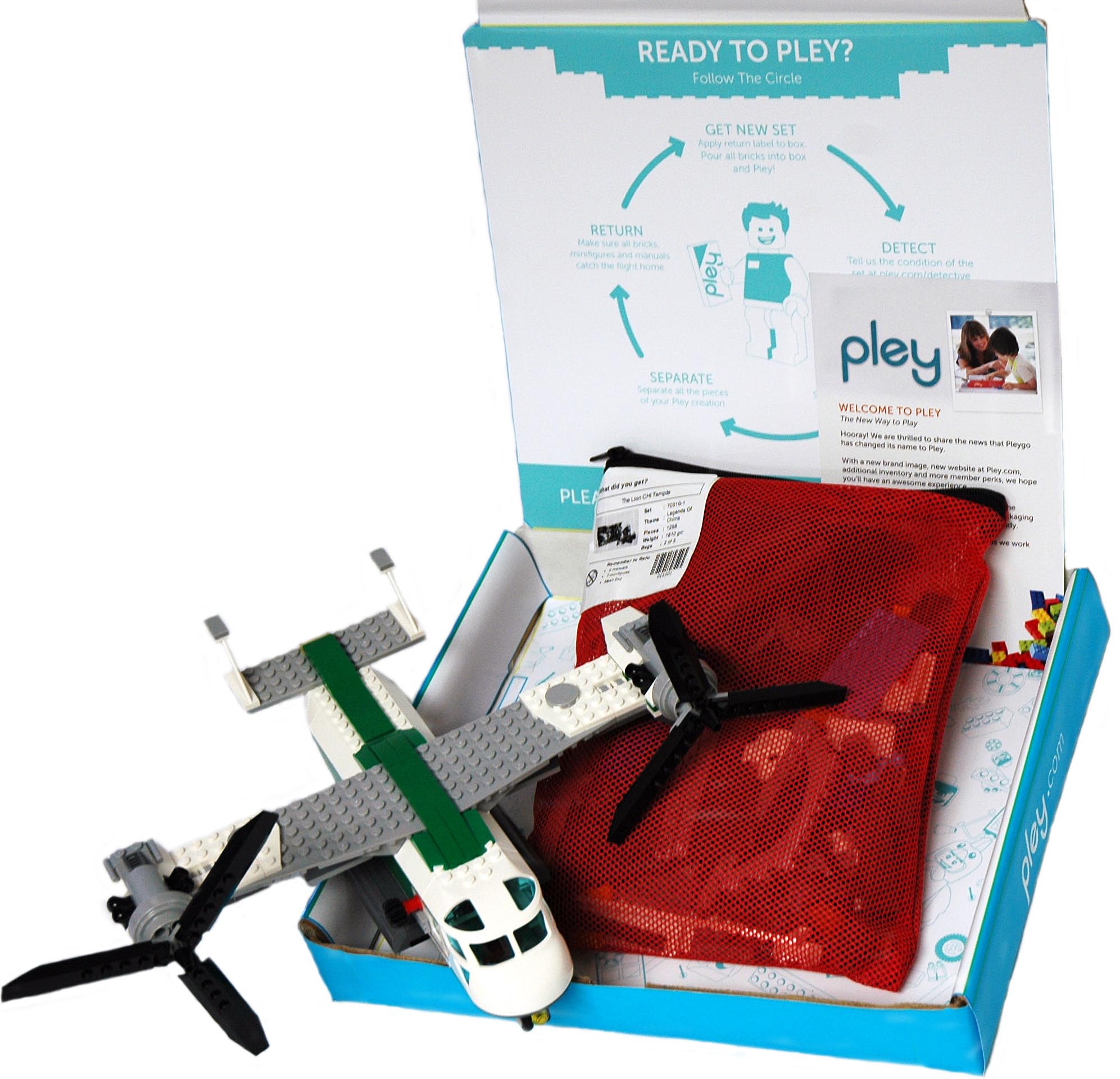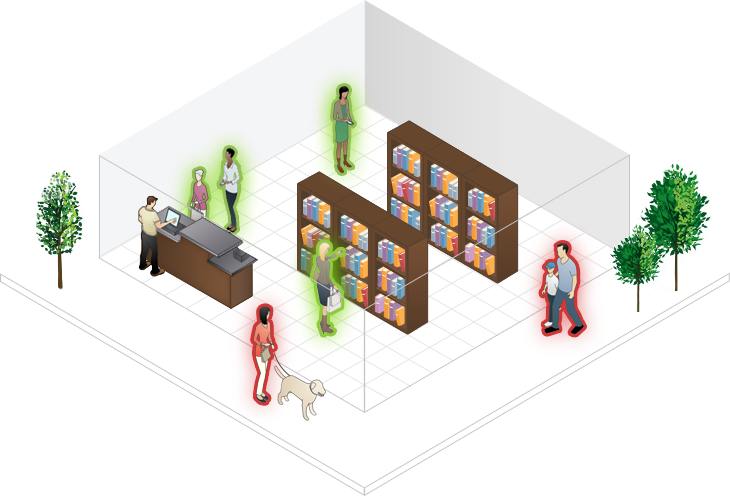 A Q&A with Pley co-founder and CEO Ranan Lachman. The San Jose-based startup, which offers a LEGO toy rental service, announced in mid-February the closing of a $6.75 million venture funding round—it’s first outside investment. Investors include Allegro Venture Partners, FLOODGATE Fund, Correlation Ventures, Maven Ventures and Western Technology Investment. It was founded last year by Lachman and CMO Elina Furman.
A Q&A with Pley co-founder and CEO Ranan Lachman. The San Jose-based startup, which offers a LEGO toy rental service, announced in mid-February the closing of a $6.75 million venture funding round—it’s first outside investment. Investors include Allegro Venture Partners, FLOODGATE Fund, Correlation Ventures, Maven Ventures and Western Technology Investment. It was founded last year by Lachman and CMO Elina Furman.
SUB: Please describe Pley and your primary innovation.
Lachman: Pley is a platform that disrupts the way families consume educational toys. We are leveraging the sharing economy and offering consumers the chance to try a product and enjoy it without the need to own it. On a grander scale, we are redefining how kids and families consume products, teaching our future generation about the principles of sharing, collaboration, and responsibility, while benefiting parents with greater convenience and affordability, and reducing ecological footprint.
SUB: Who are your target markets and users?
Lachman: We primarily target families with kids three-to-14, though we have many adults who love LEGO that are part of the community. Our target users are families that want their kids to be engaged in educational play, which fosters vital developmental growth. For a long time, these families were forced to spend their scarce capital on owning toys, only to find them neglected, collecting dust, and taking up vital storage space.
SUB: Who do you consider to be your competition, and what differentiates Pley from the competition?
Lachman: We are the only LEGO rental subscription company on the market. There is one other company which rents toys to younger kids, but we see our value proposition very differently. We are essentially positioning ourselves to be a discovery, try-before-you-buy model, as opposed to a one-time playing experience. Our kids are consumed by the idea of building LEGO sets again-and-again, and we are the only company that can deliver on this promise.
Sending millions of LEGO pieces and Minifigures around the country is not for the faint of heart. Our operations are extremely complex and proprietary, and we don’t really see any other competitors in this space.
SUB: You just announced that you’ve raised $6.75 million in venture funding. Was this your first round of outside funding?
Lachman: We were privately funded prior to this funding round.
SUB: How do you plan to use the funds, and do you have plans to seek additional outside funding in the near future?
Lachman: We are planning to use the money to build out an East Coast facility, expand our business overseas and expand our marketing reach. We also plan to open our platform so we can begin offering a wider range of ‘smart,’ STEM-based toys, so parents can test which toys their kids like most while avoiding investment in prohibitively expensive new products that their kids may not respond to.
As our business continues to grow, we expect that our first mover advantage will provide us with expansion opportunities that will require additional cash infusion.
SUB: What was the inspiration behind the idea for Pley? Was there an ‘aha’ moment, or was the idea more gradual in developing?
Lachman: The idea came from a pain point. My co-founder and I had a similar problem in that both our families were spending an extreme amount of money on LEGO sets. Kids are insatiable when it comes to getting new sets, and it was painful to see these expensive sets just sitting around and collecting dust in the toy bins. We knew that other parents shared our frustrations and that there was a better model out there, and we took the opportunity to share it with other families.
SUB: What were the first steps you took in establishing the company?
Lachman: Our first step was to test our hypothesis that parents want an affordable and convenient way to try out expensive toys prior to purchase. We built our website and set up a small warehouse facility. Once we were ready, we primarily grew from word-of-mouth and PR. We were expecting interest, but even we were surprised at the strong response from parents, adult fans and the media to our concept. Everyone called it a ‘no-brainer.’
SUB: How did you come up with the name? What is the story or meaning behind it?
Lachman: The name ‘Pley’ is a twist on the word ‘play’ because our concept is all about flipping our conventional perception of toys and ownership. We see ourselves as disrupters in an industry that relies on consumption with an immense amount of waste, hence the play on letters. We provide the new way to play.
SUB: What have the most significant challenges been so far to building the company?
Lachman: Our challenges have been numerous. We are always working to reduce our shipping time, which will improve even more with the new East Coast facility, and we do our best to match our members with their top LEGO sets choice, but of course, not everyone can have the same hot new set at the same time. The main challenge, however, which we actually are embracing and doing in a fun way, is educating our customers.
As a company firmly rooted in the sharing economy, we work hard to make sure our members’ kids learn to share, which for some kids is a new experience. We are offering a unique service for LEGO fans who could not normally have access to such a preponderance and variety of sets, as LEGO is an expensive toy. And with that comes responsibility. We’re working hard to develop educational programs to teach our customers about responsibility. Our ‘Pley Nice’ initiative is all about teaching kids to be more responsible—not mixing the Pley set with their LEGO pile at home, keeping track of pieces, and making sure to separate the set before returning to us. We have found that parents are actually grateful to us since their kids have never before spent so much time taking care of their toys and being responsible for their condition.
SUB: How do you generate revenue or plan to generate revenue?
Lachman: Our revenue is generated by a recurring billing model. We have three monthly levels of membership: $15, $25, and $39 per month, which provide endless playtime.
SUB: What are your goals for Pley over the next year or so?
Lachman: We plan to continue to grow our member base and build out a robust community. Our members are rabidly loyal and send in photos and video of their creations. We hope to galvanize their enthusiasm through formal community programs. We are also excited to expand our platform and introduce our member base to some of the best toys that are being developed. Right now, there is a bit of a creativity boom and toy renaissance in the industry, and we want to bring these advancements to kids and families who may not be able to afford trying them out. We plan to become a discovery platform as much as a rental platform in the very near future, as well as expand our business internationally.














